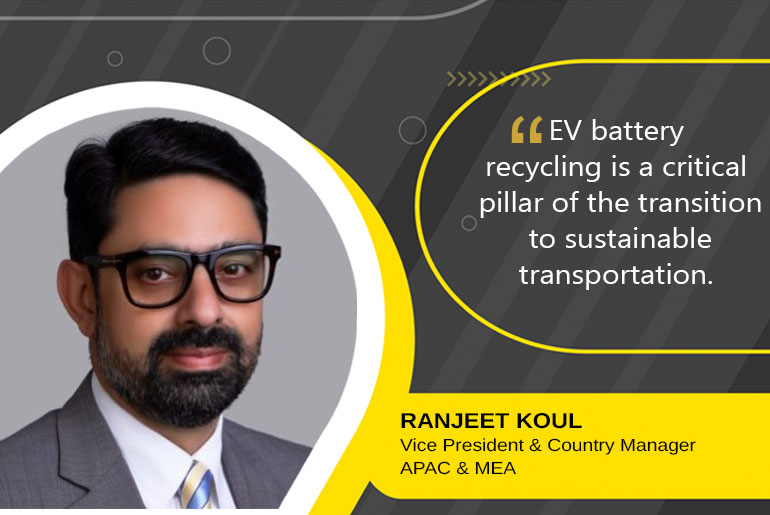As the world continues to grapple with the challenges of climate change and environmental degradation, the transition to electric vehicles (EVs) has emerged as a pivotal strategy in reducing carbon emissions and mitigating the impact of transportation on our planet. However, amidst the enthusiasm for cleaner mobility, there lies a pressing concern: the fate of electric vehicle batteries once they reach the end of their life cycle. EV battery recycling has emerged as a critical component in ensuring the sustainability of electric transportation and maximizing the environmental benefits of the EV revolution.
The rapid growth of the electric vehicle market has led to a corresponding surge in the production of lithium-ion batteries, which are the primary energy storage systems used in EVs. While these batteries offer numerous advantages, including high energy density and long lifespan, they also pose significant challenges at the end of their operational life. Unlike traditional lead-acid batteries, which have well-established recycling infrastructure, lithium-ion batteries present unique complexities due to their composition of various rare and valuable materials, including lithium, cobalt, nickel, and graphite.
Effective recycling of EV batteries is essential for several reasons. Firstly, it helps to alleviate concerns regarding resource depletion and supply chain vulnerabilities associated with critical materials such as lithium and cobalt. By recovering and reusing these valuable materials, we can reduce the need for new mining activities, which often have detrimental environmental and social impacts. Additionally, recycling enables the recovery of metals with a high energy cost, such as cobalt, thus reducing the overall environmental footprint of battery production.
Moreover, EV battery recycling offers significant economic opportunities. As the demand for electric vehicles continues to soar, a robust recycling industry can create jobs, spur innovation, and drive economic growth. By establishing efficient recycling processes and infrastructure, countries can position themselves as leaders in the burgeoning green economy while simultaneously reducing dependence on imported raw materials.
However, despite the clear benefits of EV battery recycling, several challenges must be addressed to realize its full potential. One of the primary obstacles is the lack of standardized recycling technologies and processes. Unlike traditional lead-acid batteries, which have well-established recycling methods, lithium-ion batteries require more sophisticated and resource-intensive recycling techniques due to their complex composition.
Furthermore, there is a need for greater collaboration and coordination among stakeholders across the EV supply chain, including automakers, battery manufacturers, recyclers, and policymakers. Developing a circular economy approach that prioritizes the collection, transportation, and recycling of end-of-life batteries is essential for maximizing resource recovery and minimizing environmental impact.
In recent years, efforts to advance EV battery recycling have gained momentum, with governments, industry players, and research institutions investing in research and development initiatives aimed at improving recycling technologies and infrastructure. Innovations such as hydrometallurgical processes, pyrometallurgical methods, and direct recycling approaches hold promise for increasing the efficiency and sustainability of battery recycling operations.
In conclusion, EV battery recycling is a critical pillar of the transition to sustainable transportation. By recovering valuable materials from end-of-life batteries and reintegrating them into the production of new batteries, we can reduce reliance on finite resources, minimize environmental impact, and foster economic growth. However, realizing the full potential of EV battery recycling will require concerted efforts from all stakeholders to overcome technological, logistical, and regulatory barriers. As we strive towards a greener future, investing in a circular economy for electric vehicle batteries is not just an option—it is an imperative.

